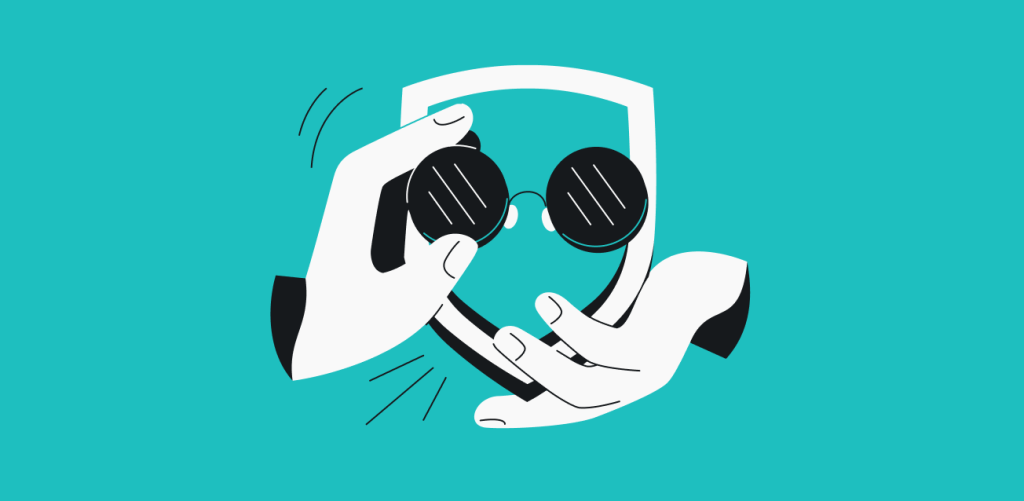In today’s digital age, online privacy is essential. VPNs, or Virtual Private Networks, are powerful tools to protect your data.
Finding the best VPN for privacy can seem overwhelming with many options available. Understanding which VPNs offer top-notch privacy features is key to making an informed choice. Whether you’re browsing the internet, streaming content, or working remotely, a reliable VPN ensures your activities remain private.
This guide will help you navigate the world of VPNs, highlighting essential features that enhance your online security. By the end, you’ll be equipped with the knowledge to select the best VPN for your privacy needs.
Overviews of Contents
ToggleImportance Of Vpns
VPNs, or Virtual Private Networks, have become essential tools for online privacy. They create secure connections over the internet, protecting your data from prying eyes. With cyber threats on the rise, using a VPN is more important than ever. Let’s explore some key reasons why VPNs are crucial for everyone.
Protecting Personal Data
Every time you browse the web, your data can be exposed. Hackers can steal your personal information. This includes passwords, credit card details, and more. A VPN encrypts your data, making it unreadable to others. This ensures your personal information stays safe. Even on public Wi-Fi networks, your data remains secure. VPNs offer peace of mind in a digital world.
Need to understand more about VPN? This post might help you. The Best Free VPNs for Torrenting: Secure and Fast Options
Bypassing Geo-restrictions
Ever tried to access content only to find it’s blocked in your region? Many websites and streaming services restrict access based on location. A VPN can help bypass these geo-restrictions. By connecting to a server in another country, you can access content as if you were there. This opens up a world of possibilities. Enjoy your favorite shows and websites without limitations.
Key Features To Look For
When choosing the best VPN for privacy, you need to focus on key features. These features ensure your data stays safe and private. Let’s dive into the essentials that make a VPN worth your trust.
Encryption Standards
Encryption standards are crucial for a secure VPN. Look for strong encryption protocols like AES-256. This type of encryption is military-grade. It ensures that your data remains unreadable to hackers. Also, check if the VPN offers protocols like OpenVPN or IKEv2. These protocols provide reliable and secure connections.
No-log Policies
A strict no-log policy is vital. It means the VPN does not store your online activities. This keeps your browsing history private. Always read the privacy policy of the VPN. Ensure they do not track or log your data. A good VPN will be transparent about its no-log policy. It should have been audited by third parties.
Expand your knowledge about VPN with this article. Best Vpn for Japan: Unlock Fast, Secure, and Private Browsing
Top Vpn Providers
Choosing the right VPN provider is crucial for maintaining online privacy. With numerous options available, it can be challenging to decide which service to use. Below, we explore some of the top VPN providers known for their security features, speed, and reliability.
Expressvpn
ExpressVPN is renowned for its robust security measures and fast connection speeds. It uses AES-256 encryption, which is the same standard used by the U.S. government to protect classified information. Users can enjoy browsing without fear of tracking or data theft.
- Over 3,000 servers in 94 countries
- Strict no-logs policy
- 24/7 customer support
- Compatible with various devices
ExpressVPN also offers a 30-day money-back guarantee, allowing users to test the service risk-free. The user-friendly interface makes it easy for beginners to navigate and set up. Its ability to bypass geo-restrictions makes it a popular choice for streaming content.
Nordvpn
NordVPN is another top-tier VPN provider known for its high-level security and vast server network. It offers double VPN encryption, providing an extra layer of protection by routing your traffic through two servers.
| Feature | Details |
|---|---|
| Server Network | 5,500+ servers in 59 countries |
| No-Logs Policy | Strict no-logs policy |
| Customer Support | 24/7 live chat support |
| Compatibility | Windows, macOS, Android, iOS, and more |
NordVPN is known for its CyberSec feature, which blocks ads and malware, enhancing your browsing experience. The service also supports six simultaneous connections, making it ideal for families or small businesses. The 30-day money-back guarantee provides peace of mind to new users.

Credit: surfshark.com
Discover more interesting content on VPN by reading this post. Private Internet Access Vs Surfshark: Ultimate VPN Comparison
Setting Up Your Vpn
Setting up your VPN is essential for securing your online privacy. Follow these steps to ensure your VPN is up and running smoothly.
Choosing A Device
First, decide which device you want to use with your VPN. It could be your computer, smartphone, tablet, or even your router. Each device type might have different setup processes.
- Computers: Both Windows and macOS support VPNs.
- Smartphones: Android and iOS have VPN apps.
- Routers: Some VPNs offer router support for entire network security.
Installing The Software
Once you’ve chosen your device, you need to install the VPN software. Here’s a step-by-step guide:
- Go to the VPN provider’s website.
- Find the download section for your device type.
- Download the appropriate software or app.
- Open the downloaded file and follow the installation instructions.
After installation, open the VPN software and log in with your account details. If you don’t have an account yet, create one on the VPN provider’s website.
Configuring Your Vpn
After logging in, you may need to configure your VPN settings. This step ensures your VPN works correctly. Here are some common settings to check:
| Setting | Description |
|---|---|
| Server Location | Select the server location you want to connect to. |
| Protocol | Choose a protocol like OpenVPN or IKEv2 for better security. |
| Kill Switch | Enable the kill switch to prevent data leaks if the VPN disconnects. |
After configuring the settings, connect to the VPN server. Your internet traffic is now encrypted and secure.
Find out more about VPN by exploring this related topic. Nordvpn Vs Expressvpn: Which VPN Reigns Supreme in 2025?
Vpn Performance Tips
VPNs are essential tools for online privacy and security. They can sometimes slow down your internet connection or cause instability. To get the best performance from your VPN, follow these simple tips. These will help you optimize speed and ensure stable connections.
Optimizing Speed
Choose a server close to your location. This reduces the distance your data travels. Less distance means faster speeds. Avoid servers in high-traffic areas. They often get crowded and slow down. Try different servers to find the fastest one for you.
Use a wired connection if possible. Wi-Fi can sometimes be unstable and slower. A wired connection provides more consistent speeds. Also, check your internet speed without the VPN. If it’s slow, the problem might not be the VPN. Contact your ISP for assistance.
Use the latest VPN protocol. Some protocols are faster than others. OpenVPN and WireGuard are known for their speed. Update your VPN software regularly. New updates often include performance improvements.
Ensuring Stable Connections
Choose a reliable VPN provider. Some VPNs have more stable servers than others. Read reviews and ask for recommendations. A good provider will offer consistent connections.
Restart your router and device regularly. This helps clear any temporary issues. It can improve your connection stability. Also, ensure your device’s software is up to date. Outdated software can cause connection problems.
Limit the number of devices connected to the VPN. Too many devices can strain the connection. Disconnect devices you are not using. This frees up bandwidth and improves stability.
Enable the kill switch feature if your VPN has one. This prevents data leaks if the VPN connection drops. It ensures your privacy stays intact even during brief disconnections.

Credit: www.privacytools.io
Common Vpn Issues
Using a VPN can enhance your online privacy and security. Yet, even the best VPNs can have common issues. These problems can affect your browsing experience. Let’s explore some of these issues.
Connection Drops
Connection drops can be a frustrating VPN issue. You may suddenly lose your VPN connection. This can expose your real IP address. Such drops usually happen due to network instability. Sometimes, the VPN server you are connected to is overloaded. This can lead to frequent disconnections. Always choose a VPN with a kill switch feature. This ensures your data stays protected even if the connection drops.
Slow Speeds
Slow speeds are another common issue with VPNs. A VPN encrypts your data, which can slow down your internet speed. Server distance also plays a role. The farther the server, the slower the speed. Server congestion can cause speed drops too. Opt for a VPN with multiple server locations. This can help you find a less crowded server. Also, ensure your VPN offers high-speed servers. This can improve your browsing experience.

Credit: www.youtube.com
Frequently Asked Questions
What Is The Best Vpn For Privacy?
The best VPN for privacy is one with strong encryption, a strict no-logs policy, and high-speed servers. Popular choices include NordVPN, ExpressVPN, and CyberGhost.
How Does A Vpn Protect Privacy?
A VPN protects privacy by encrypting your internet connection and masking your IP address. This makes it difficult for hackers and third parties to track your online activity.
Do All Vpns Ensure Privacy?
Not all VPNs ensure privacy. Choose reputable VPNs with strong encryption and no-logs policies. Free VPNs may compromise your privacy by logging your data.
Can A Vpn Be Traced?
While a VPN hides your IP address, it’s not entirely untraceable. Government agencies and advanced hackers may still trace VPN traffic. Choose a reliable VPN for better protection.
Conclusion
Choosing the right VPN is crucial for your online privacy. It protects your data from prying eyes. You can browse safely and securely. A good VPN also hides your location. This keeps your identity safe. Always pick a VPN with a strong reputation.
Make sure it has good reviews. Free trials are also helpful. Test out a few options. Find the one that best meets your needs. Stay safe online with a reliable VPN. Your privacy matters.




